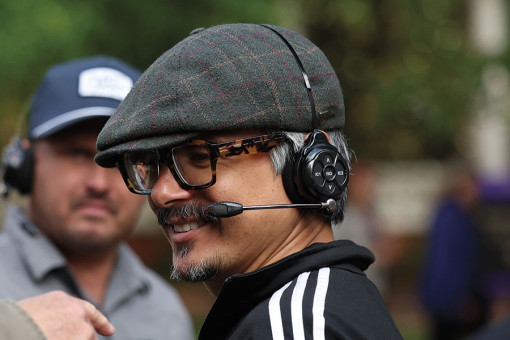When it came time to choose a career, Freema Agyeman says, the universe guided her toward the performing arts.
So it's not surprising that the actress, who stars as Dr. Helen Sharpe on NBC's New Amsterdam, believes in self-reflection through yoga and meditation.
The London native also believes in being prepared for opportunity. And in 2006, she was ready when offered the role of Martha Jones, companion to a time-traveling alien on the BBC series Doctor Who.
"It changed my career," says Agyeman, whose early acting years weren't easy. In her working-class family, money was tight, and at times her sister helped cover the bills. "Overnight, being on a hit show, you become a household name. I was under contract, so after Doctor Who, I went to [its spinoff] Torchwood, then Law & Order: UK."
When her contract was up, Agyeman decided to try her luck in the U.S. In 2013, she landed a part in the CW's The Carrie Diaries, then moved on to Netflix's Sense8. She played Amanita Caplan, the girlfriend of Nomi, a trans woman blogger and hacktivist.
"I wanted to represent a queer person in a queer relationship honestly," Agyeman says. "To be part of that movement was such an honor. As a black woman, I am always looking at whether I'm represented on TV. It has to go beyond tokenism."
When her agent suggested she read for New Amsterdam (it returns in September for season two), Agyeman's first reaction was no. Medical dramas have been done many times, she told herself, and she wanted more challenging roles. But after reading the pilot script, she changed her mind.
"The message, momentum and characters blew me away," she recalls. "It's not just the sociopolitical messages that appeal to people. The cast represents a cross-section of society — different classes, races and cultures."
Agyeman, whose mother is Iranian and father is Ghanaian, says there's nothing more important than authenticity in storytelling, which requires diverse voices behind the camera as well as diverse faces on the screen.
"The more you can include everyone, the better the show will be."
This article originally appeared in emmy magazine, Issue No. 8, 2019












